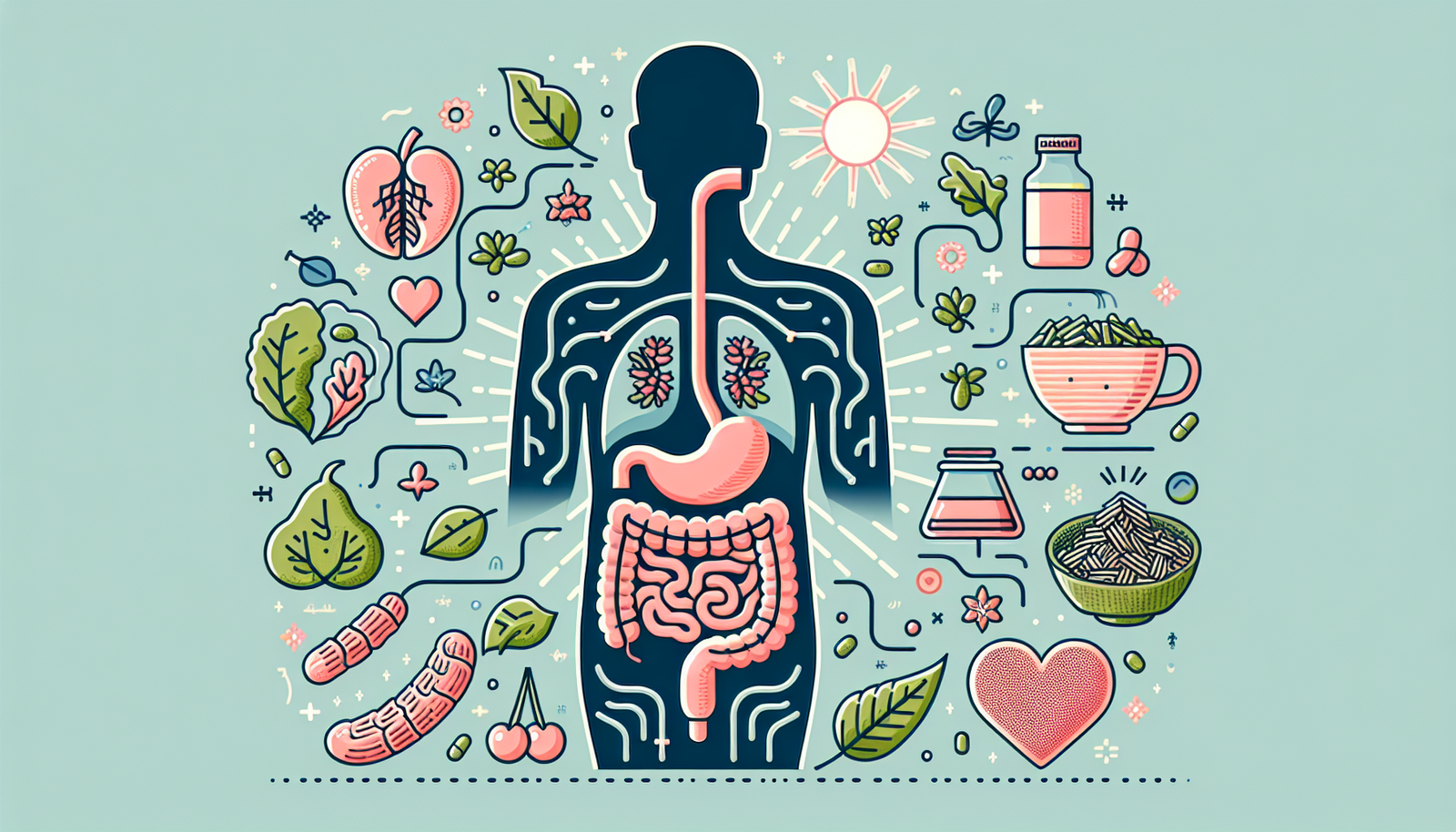Understanding the Microbiome’s Influence on Digestion
Understanding the Microbiome’s Influence on Digestion
What is the Microbiome?
The microbiome is a complex ecosystem composed of trillions of microorganisms, including bacteria, viruses, fungi, and archaea, that reside primarily in the human gut. This vast community of microbes plays a crucial role in various bodily functions, particularly digestion. The human microbiome varies significantly from person to person and is influenced by factors such as diet, age, environment, and genetics.
The Role of the Gut Microbiome in Digestion
1. Breakdown of Complex Carbohydrates
The human digestive system lacks the necessary enzymes to break down certain complex carbohydrates found in plant foods, such as cellulose and some resistant starches. This is where the microbiome comes into play. Beneficial gut bacteria, particularly species such as Bacteroides and Firmicutes, specialize in fermenting these complex carbohydrates, transforming them into short-chain fatty acids (SCFAs) like butyrate, propionate, and acetate. SCFAs are not only energy sources for colonic cells but also play a role in maintaining gut health, reducing inflammation, and modulating metabolism.
2. Protein Digestion and Amino Acid Synthesis
The microbiome also contributes to protein digestion. While the stomach and small intestine primarily digest proteins into amino acids, specific gut bacteria can help ferment undigested proteins and synthesize essential amino acids that the body cannot produce itself. Some microbes can also convert amino acids into bioactive compounds, which can influence health outcomes and metabolic processes.
3. Fat Metabolism
Certain gut bacteria are involved in lipid metabolism, aiding in the breakdown of dietary fats. For instance, bacteria such as Lactobacillus can help emulsify fats, improving absorption. Moreover, the microbiome can influence how fats are metabolized, potentially impacting conditions such as obesity and metabolic syndrome. Dysbiosis, or an imbalance in gut bacteria, can lead to increased fat accumulation and altered fat storage mechanisms, further complicating digestive health.
Factors Influencing the Microbiome
1. Diet
Diet has a profound influence on the composition and diversity of the gut microbiome.
- Fiber-Rich Foods: High-fiber diets, including fruits, vegetables, legumes, and whole grains, promote the growth of beneficial bacteria that thrive on dietary fiber.
- Processed Foods: Diets high in processed foods, sugars, and unhealthy fats can lead to dysbiosis, characterized by a lack of microbial diversity and an overgrowth of harmful bacteria.
- Fermented Foods: Foods such as yogurt, kefir, sauerkraut, and kimchi introduce live beneficial bacteria into the gut, enhancing microbial diversity and supporting gut health.
2. Antibiotic Use
Antibiotics can disrupt the microbiome balance by killing off both harmful and beneficial bacteria. Alterations in the gut microbiota can lead to gastrointestinal issues such as diarrhea or Clostridium difficile infections. Post-antibiotic treatment, the microbiome typically begins to recover within weeks, but the recovery period can vary, and some individuals may experience long-term changes.
3. Age
The composition of the microbiome changes with age. Infants are initially colonized by maternal bacteria during delivery and breastfeeding, which helps establish the initial gut flora. As individuals age, the microbial community continues to evolve due to dietary changes, health conditions, and lifestyle factors, which can influence digestion. Elderly individuals may experience a reduction in microbial diversity, potentially impacting their digestion and metabolism.
4. Stress
Psychological stress can influence the gut microbiome and digestion. The gut-brain axis describes the bidirectional communication between the gut and the brain. Stress can lead to an imbalance in gut bacteria, contributing to digestive issues such as irritable bowel syndrome (IBS), bloating, and altered motility.
Dysbiosis and Digestive Disorders
Dysbiosis refers to an imbalance in the gut microbiome, where harmful bacteria outnumber beneficial ones. This imbalance has been linked to various digestive disorders, including:
1. Irritable Bowel Syndrome (IBS)
IBS is characterized by abdominal pain, bloating, and altered bowel habits. Research indicates that individuals with IBS often have a different gut microbiome composition compared to healthy individuals, suggesting a significant role for dysbiosis in the development of this condition.
2. Inflammatory Bowel Disease (IBD)
IBD includes conditions such as Crohn’s disease and ulcerative colitis, which involve chronic inflammation of the gastrointestinal tract. Studies have shown that those with IBD have a distinct gut microbiome marked by decreased diversity and an increased presence of pathogenic bacteria. Managing the microbiome may be crucial in the treatment and prevention of flare-ups.
3. Celiac Disease
Celiac disease is an autoimmune disorder triggered by gluten consumption, leading to damage to the small intestine’s lining. Research indicates that a healthy gut microbiome may play a protective role against the development of celiac disease by promoting immune tolerance to gluten.
The Microbiome and Immune Function
The gut microbiome also contributes to immune function, affecting digestion and overall health. Up to 70% of the body’s immune system is housed in the gut. The diverse array of gut bacteria helps educate the immune system to differentiate between harmful pathogens and beneficial substances, which is crucial for maintaining gut integrity and preventing inflammatory responses.
1. Immune Modulation
Certain bacterial species, such as bifidobacteria and lactobacilli, can enhance the production of anti-inflammatory cytokines while inhibiting pro-inflammatory markers. This immunomodulation is essential for preventing digestive disorders and conditions such as allergies or autoimmune diseases.
2. Gut Barrier Integrity
A healthy microbiome supports the integrity of the intestinal barrier, preventing leakiness that can lead to conditions like leaky gut syndrome. SCFAs produced by beneficial bacteria also promote the production of mucus and strengthen tight junctions between gut cells, further ensuring a robust barrier against pathogens.
Probiotics and Prebiotics
1. Probiotics
Probiotics are live microorganisms that, when consumed in adequate amounts, confer health benefits to the host. Different strains of probiotics can help restore gut balance, especially following antibiotic use or during a dysbiotic state. Key strains include:
- Lactobacillus: Commonly found in yogurt, these strains can help alleviate diarrhea, improve lactose digestion, and enhance immune responses.
- Bifidobacterium: Present in fermented foods, these bacteria may play a role in preventing constipation, enhancing gut barrier function, and reducing inflammation.
2. Prebiotics
Prebiotics are non-digestible food components that promote the growth of beneficial gut bacteria. They include dietary fibers such as inulin and fructooligosaccharides, found in foods like garlic, onions, and bananas. Consuming prebiotics can enhance microbiome diversity and improve digestive health.
The Future of Microbiome Research in Digestion
The field of microbiome research is rapidly evolving, offering exciting prospects for enhancing digestive health through personalized approaches.
1. Microbiome Testing
Fecal microbiome testing is emerging as a tool for understanding individual gut health. By analyzing microbial composition and diversity, healthcare providers can tailor dietary and lifestyle recommendations to support digestive health.
2. Targeted Probiotic Treatments
As we learn more about specific strains and their effects on various conditions, it may soon be possible to develop targeted probiotic treatments aimed at specific digestive disorders, leading to more effective management strategies.
3. Dietary Interventions
Research into understanding how different foods impact the microbiome will pave the way for dietary interventions designed to optimize gut health and improve digestion. Personalized nutrition plans based on microbiome profiles could provide substantial benefits for individuals with digestive issues.
4. Microbiome and Mental Health
Emerging studies are investigating the gut-brain axis, exploring how the microbiome influences not just digestion, but mental health as well. This interdisciplinary approach may yield comprehensive strategies for managing conditions like IBS, depression, and anxiety.
Maintaining a Healthy Microbiome for Optimal Digestion
To support a healthy microbiome and, consequently, optimal digestion, consider the following lifestyle and dietary strategies:
1. Eat a Diverse Diet
A varied diet rich in whole foods, particularly fruits, vegetables, whole grains, and lean proteins, can foster a diverse microbiome.
2. Prioritize Fiber
Ensure adequate fiber intake by incorporating a variety of fruits, vegetables, legumes, and whole grains into daily meals. Fiber is critical for feeding beneficial bacteria and promoting SCFA production.
3. Include Fermented Foods
Regularly consume fermented foods (like yogurt, kefir, sauerkraut, and kombucha) to introduce beneficial microorganisms into the gut.
4. Stay Hydrated
Adequate water intake is essential for digestion and helps maintain optimal gut function.
5. Limit Processed Foods
Reduce the intake of processed foods, sugars, and unhealthy fats that can disrupt the gut microbiome.
6. Manage Stress
Incorporate stress-management techniques such as exercise, meditation, and mindfulness to support gut health and digestion.
7. Seek Professional Guidance
For those with specific digestive issues, consulting a healthcare provider or registered dietitian can provide personalized recommendations based on individual microbiome health and needs.
By understanding the microbiome’s influence on digestion, we are better equipped to make informed decisions about our health and well-being, ultimately leading to improved digestive health.








